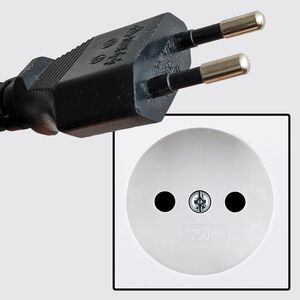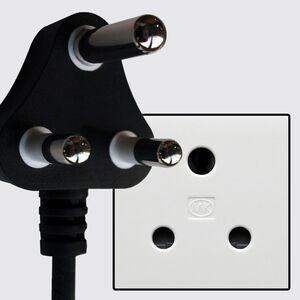
Maggie & Jan
Maggie & Jan
Travel tips and info
South Africa, while being a paradise in many respects, can have more crime than you may be accustomed to in your home country. Jan has visited and travelled all over the region for years without much of a problem, and here is his general recommendations on precautions and how to stay safe and avoid trouble. This list continues onto general topics to get to know the land.
Airport and Bags
It is recommended that you fly directly to Cape Town and do not route through Johannesburg. The airports in South Africa can have long queues at security and it is recommended - should you have a lay-over - that you do not liner, as even domestic flights will have security requirements. Cape Town airport, for example, has two security wings as you fly out - one that is the baggage check that you’re likely accustomed to, and another further down that is a passport check.
It does happen that bags are delayed or lost, so, it is recommended that you put your most important belongings or medication in your in-cabin bag.
Phone
A phone will help you stay safe in South Africa. When you arrive at Cape Town International, the local mobile phone companies give out free sim cards in the baggage claim areas and outside this. These are the cards for different phone types so you can use your mobile phone in South Africa. The most common networks are MTN, Vodacom, and Cell C, and all have similar but different prices for data and voice and such. If you receive one, make sure you ask them to tape your old sim-card to a card or business card in your wallet so you don’t lose it.
It is strongly recommended that you make sure you have enough data and minutes to be able to make phone calls if you need to.
You should also bring a portable battery charger for your phone. These are inexpensive on Amazon and such, and because the power in South Africa is intermittent at best, and having a phone helps with everything, it is just a good idea to have one on hand and charge it at night.
I mean this kind of thing: https://www.amazon.com/INIU-High-Speed-Flashlight-Powerbank-Compatible/dp/B07CZDXDG8/
Most phones will work on the networks, but occasionally, some may not, and you are encouraged to google if your phone’s radio will correspond to the network types in South Africa. A quick google search should clarify this.
Wallet
Most South Africans don’t carry cash on them for security reasons, however have some small change available for car guards. These are persons that help you park and watch your car for you while you are away. This is common practice in South Africa.
Most businesses and parking attendants only accept card - so bring a card you’re willing to tap to pay with, which has low fees on currency exchange. It is quite complicated to open a domestic bank account, and it is recommended that you bring a travel card that allows such transactions instead.
Travel
Make sure your friends and family always know where you are. Confirm your arrival at a destination with them, and check in with your friend or family to make sure they have arrived.
Car and Road Etiquette
- Avoid public transit
- Avoid the highways at night.
- When leaving a gathering with friends, make sure to check in with them when you arrive at your destination to confirm that you have arrived.
- When parking, pay parking to the attendant and offer to tip when you return to the car. This is common practice and most attendants will respond with “I’ll take care of your car don’t worry”.
- Don’t leave bags in your car where they are visible - even an empty plastic bag could invite a smash-and-grab. Put your bags in the trunk.
- Don’t leave valuables in your car.
- Get the comprehensive insurance package.
- Make sure you have a GPS, a working mobile phone signal, and a charged spare battery for your phone.
- On the highways, the slow lane should in theory be the lane on the left.
- On the highways, it is common practice to drive in the yellow line on the left to let the person behind you pass should they want to drive faster. This is commonly followed by them flashing their hazard lights briefly as a thank you. However, do not under any circumstances be pushed by an aggressive driver behind you into the yellow line zone on the left if you are driving up a hill or around a corner. As it is Africa, there is just a higher likelihood of pedestrians, stopped cars, animals or another thing being around a corner - so don’t take a chance.
- If you feel like a car is following you - incredibly rare but could happen - stop at a public gas station and phone the police.
- If the power is out - which does happen every day in South Africa - the traffic lights may not work - and become a four way stop. Watch out for them when driving at night, as if it’s dark you may not see a switched off traffic light, so drive with caution at night.
- It is legal in South Africa to drive over a red light or a stop street if you feel there is someone threatening your safety at the light.
- People run over the road to get to their destinations, even on highways, even at night. Stay vigilant.
Being a Pedestrian
- Remember that the look left-right-left before crossing is the other way around. This can catch you if you have a quick look instinctually without concentrating, be careful please.
- Cars behave as though they have the right of way - and don’t just stop at crosswalks (zebra-crossings in south africa). It is usually up to you to wait for the cars to pass. But we have alot of nice drivers too.
- Don’t go downtown Cape Town on foot unless you’re in a tour, and if you do, be quite watchful of your surroundings.
Valuables, Jewellery
It may be wise to leave your most prized possessions at home. You will likely be fine, however, why risk it?
Power
The power is itinerant at best in South Africa. Most of the country runs on scheduled power, with scheduled off times as the power grid is not able to keep up with the demand. You can google for the schedule in your area, or get an app such as “Eskomsepush” (the name is a pun I won’t explain in polite company in reference to the national power company, and expresses frustration with gusto).
Power is 220v, not 110v as in North America. Please check that your device’s power adaptor is rated for 220v, it usually says it underneath in tiny writing.
The plug points in South Africa are either 3 prong or 2 prong, and look like this:
What’s easier than the pre-purchase of a power converter, is to just get a few simple cables from a gas station or dollar store in South Africa. Or you can pre-purchase an adaptor here:
https://www.amazon.com/LENCENT-Grounded-American-Converter-Botswana/dp/B0CPLWH6HJ/
Internet
You may find that it’s a bit less reliable and slower than you’re used to, but it does (eventually) work. Bear this in mind if you have work responsibilities - it may be best to communicate asynchronously such as via email with your work if possible.
Culture around customer service, timeliness, tipping, etc
It is customary to tip waiters, barmen and car guards. A normal tip for a car guard is anything between R 5 and R 20. Most people tip 10% at a restaurant, and of course, this is at your discretion for a job well done.
To help you guage, bear in mind that the average daily way for unskilled labour is around R200 to R 350 per day in Cape Town - around 12 to 18 USD. If you encounter services from persons who are not part of the unskilled labour income group, they will likely expect more. The average salary in South Africa is currently around R 25 000 a month, which is about 1,300 USD, and minimum wage is R 25 per hour. Sadly, foreigners are often perceived as more wealthy than locals, and this may play into the attitudes you encounter - but there are plenty of good people too.
Gift giving is mildly customary - but is not necessary - in this region of Africa. For example, leaving a chocolate bar, or a shirt you don’t want anymore for the cleaning staff at a hotel is not uncommon - and whatever you leave will be used and not be thrown out.
Dressing code in most of South Africa is casual or smart casual, in most contexts other than a wedding.
What may be perceived as disinterest, or a negative attitude in a customer service context may have historic and political implications here. Consider the history of South Africa and the power dynamics involved of yourself as a person who may be perceived as privileged, purchasing or accessing services from - or being served by - those who may see themselves as disenfranchised - and may also in fact be. It helps not approach servers with an attitude of expecting servitude, but to ask their names, refer to them as Mr or Mrs, and find other small ways of showing respect towards their dignity. Africa tends towards cultural values of equality, relationships, and sharing - and the indifference that individualism creates when being served by staff might be perceived as arrogance in this context. I’d like to encourage you to speak to persons and ask their stories. You might find yourself astounded by the willingness of people to share, and the stories of someone that may seem as ordinary as a car guard. I’ve had many experiences of being humbled hearing stories of travel of Africa by foot, encounters with wild animals, etc.
The perception that things should be on time is also not quite congruent with local values. Things happen when they happen - however, if you are in a pricey hotel you should expect service. The local perception of time is more around what is happening right now, than about meeting the demands of an abstract set of ideas about time. Cape Town is less like this, but as you venture further into the countryside you are likely to encounter this. I recommend patience, as impatience about timeliness may also be perceived as foreign, come with historic-political tones of colonialism, and be seen as rude. However, people are used to attempting to adjust to this idea as well. That said, you’re in Africa - hakunah mtata, take it easy ;)

